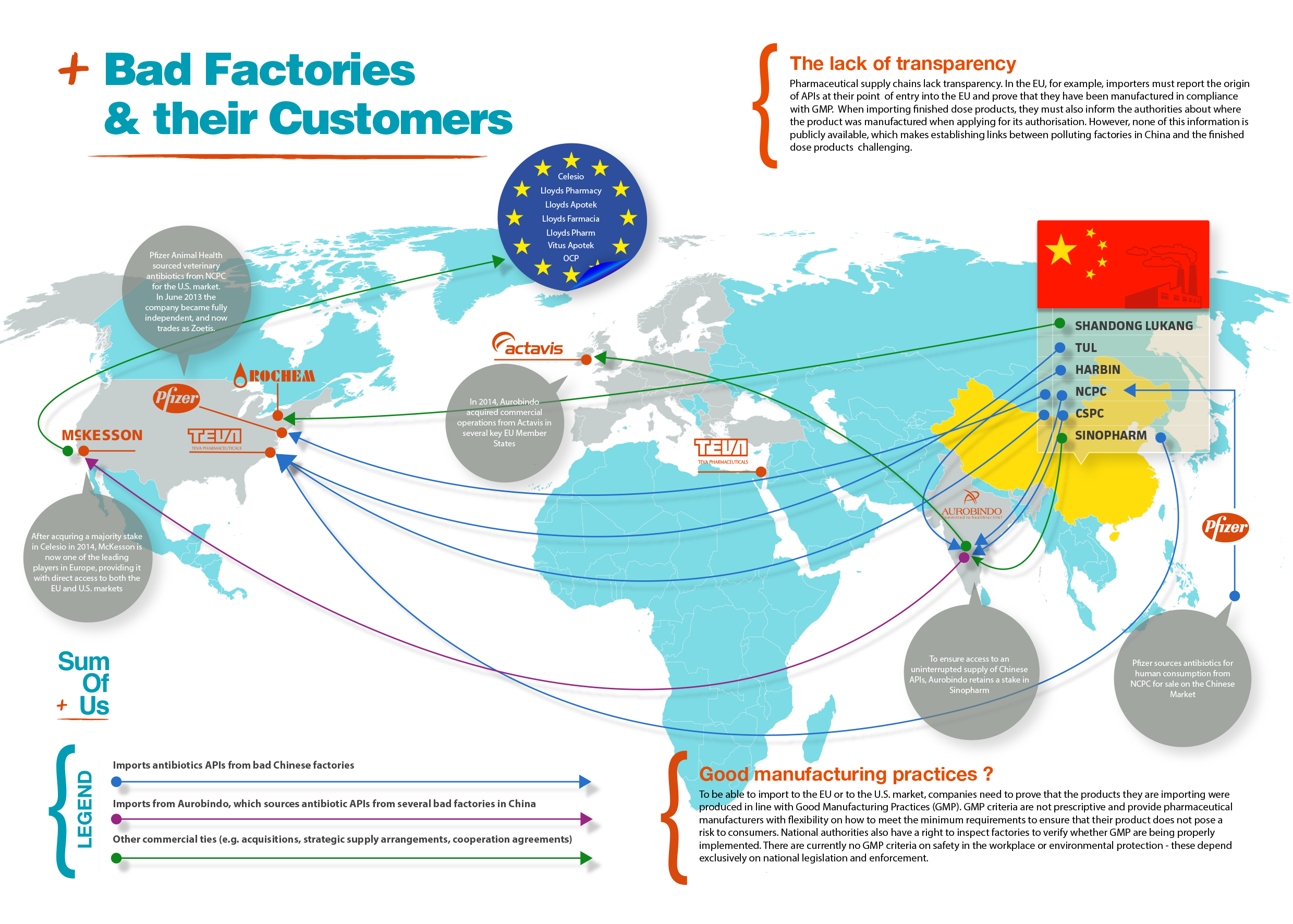New Report Links Major Pharmaceutical Companies to Global Rise in Antibiotic Resistant Bacteria
The report Bad Medicine by SumOfUs (based on research by Changing Markets and Profundo), shines a long overdue light on the issue of environmental pollution from the production of raw materials used to make pharmaceuticals and, in particular, antibiotics.
Pharmaceuticals in the environment are a global pollution problem - over 631 different pharmaceutical agents or their metabolites have been detected in at least 71 countries on all continents [1]. Pollution at the production stage is a major factor in the overall pharmaceutical pollution of the environment. Pharmaceutical residues have been detected in surface water and sewage effluent, but also in groundwater, drinking water, manure, soil, and other environmental matrices.
This report shows that the release of antibiotic effluent into rivers and the environment is contributing to the rise of drug-resistant bacteria.
While antimicrobial resistance (AMR) has been identified as one of the main risks to mankind by the WHO [2], and a global action plan was agreed upon in May 2015, very little attention has been drawn to the production of raw materials for pharmaceuticals, many of which are produced in China and India. China, for example, now produces 80-90 percent of antibiotic active pharmaceutical ingredients (APIs) [3].

Currently, the environmental impact of pharmaceutical pollution in the production stage outside of Europe is very poorly regulated and controlled. By sourcing APIs from Chinese companies (which do not respect environmental standards), the pharmaceutical industry is playing an active role in fuelling the international AMR crisis. AMR is a global emergency, which requires a comprehensive approach, and which should oblige companies to take responsibility for their supply chains.
It is time to clean up production facilities globally, to be transparent in environmental reporting and to allow third party inspection of facilities and processes. Good manufacturing practices need to include environmental criteria. Europe and the US should enforce greater transparency across the supply chain by requesting that pharmaceutical companies disclose the origin of their drugs.
HCWH Europe welcomes the findings of this report. We urgently need to tackle the challenges of antibiotic resistance, find new drugs to fight disease and reduce the overuse of antibiotics both for human and veterinary applications.
View the full report here.
Find out more:
- Search our Pharmaceuticals in the Environment project website to understand the pollution challenge
- Look at the WHO factsheet on AMR
- Read the paper: Improving Environmental Risk Assessment for Human Pharmaceuticals
- Watch the TEDx talk: Our Drugs in Their Water
- Act and sign the petition to Pfizer and other global pharmaceutical companies
– Anja Leetz, Executive Director of Health Care Without Harm Europe

[1] UBA & BMUB, April 2014, Workshop Documentation, Pharmaceuticles in the Environment – Global occurrence, effects, and options for action
[2] WHO, April 2014, Antimicrobial resistance: global report on surveillance 2014
[3] SumOfUs, June 2015, Bad Medicine Report
Preview Image © NIAID
